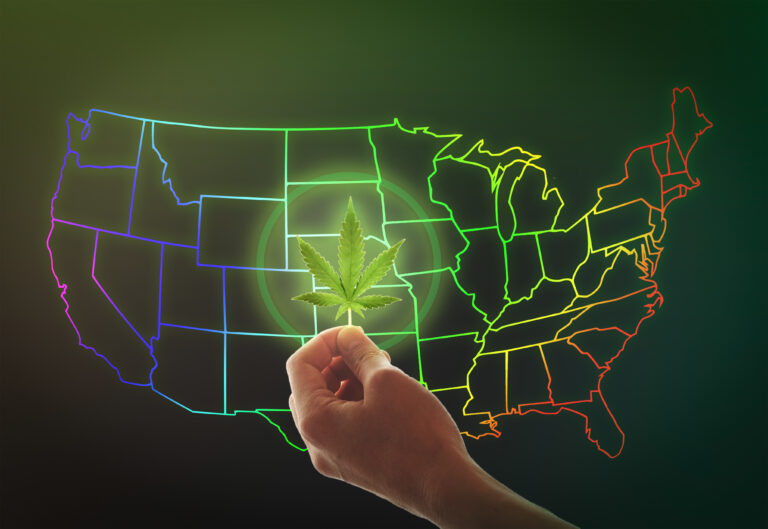With the Governor of Minnesota signing off on cannabis legislation in late May, the state became the 23rd to legalize adult-use marijuana. But the continuing expansion of cannabis legalization is not without its challenges, as seen in both states that have newly legalized use, as well as those that passed legislation several years ago.
We’ll stick with Minnesota for the first example: Leaving residents little time to celebrate the new law, the St. Paul, MN, Division of the U.S. Bureau of Alcohol, Tobacco, Firearms and Explosives (ATF) published a notice just shortly after the governor’s signing, “drawing attention to the distinction between state and federal law.”
Reminding residents that, regardless of state laws, cannabis is still federally considered to be a controlled substance, the release stated, “The federal Gun Control Act of 1968 prohibits any person who is an unlawful user of or addicted to any controlled substance as defined by the Controlled Substances Act of 1970 from shipping, transporting, receiving, or possessing firearms or ammunition.”
“Regardless of the recent changes in Minnesota law related to the legalization of marijuana,” the release continued, “an individual who is a current user of marijuana is still federally defined as an ‘unlawful user.’” Additionally, the prohibition is enforced through attestation, with those seeking to purchase a firearm having to attest whether they use marijuana when completing an ATF-required transaction form.
While a Minnesota Division of ATF issued this notice, it is a U.S. regulation, thus applies to “unlawful users” (i.e., anyone using cannabis) in any state. And, as is always the case, ignorance of the law is not a defense.
Moving on to the second example of challenges, New York is facing issues that are partly due to the inability to sell cannabis outside of the state because of the lack of federal legality. With the state having only 13 operational retails, a bottleneck has formed for the 300,000 pounds of cannabis grown by approximately 200 farmers in 2022. With the farms unable to find outlets for their product, the Governor signed Assembly Bill A7430, which “extends certain authorizations of conditional adult-use cultivators and processors to minimally process and distribute cannabis products until June 1, 2024.” In layman’s terms, the rule allows for what is being termed “marijuana farmers markets.”
In what the state is calling the New York Cannabis Growers Showcase, the working model is allowing a minimum of three growers to group together, in partnership with a retailer, to organize a farmers’ market. In addition to having a retailer partner, each market would need to be approved by the city/town where it was to be held. The market could “piggyback” on another event, but a key caveat, no matter where the market is held, would be that no on-site consumption of product would be allowed. The consumption ban is less out of concern for consumer issues and more because cannabis smoking could require a permit from the Department of Public Health, “which could slow down the launch.”
Whether dealing with federal laws infringing on the rights of users or states brainstorming new ideas to meet distribution challenges, the lack of federal legalization of cannabis is continuing to hinder the legitimacy of the market. While it’s difficult to predict how it will all evolve short-term, we can expect that challenges will continue to arise state by state until the federal government sees fit to unite the 38 states with legal medical-use and 23 states with legal adult-use into a single federal legalizing law.





